Posted on: 19 February 2021
This week’s leadership message comes from Ian Holmes, Director for our Partnership. We also have a blog from Public Health Registrar Dr Amy Stevens and Sarah Smith, Public Health Consultant for the Partnership and Director for our Improving Population Health Programme.
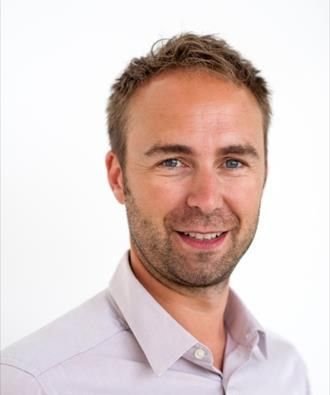 Hello my name is Ian
Hello my name is Ian
I’d like to use this blog to talk about the changes announced in the NHS white paper last week, and what they mean for Partnerships like ours.
This white paper marks the first major change in health legislation to the 2012 Health and Social Care Act introduced by the coalition government (widely known as the ‘Lansley reforms’). It follows a consultation document published by NHS England / NHS Improvement setting out options for putting Integrated Care Systems (ICSs) on a legal footing.
The proposed changes reflect much of what has been going on over the past five years through the development of ICSs. We know that with an ageing population people are increasingly living with multiple ongoing health conditions. The best way to support and meet the needs of these people is for local services (NHS, care services, and voluntary and community organisations) to work together and join up care which makes it feel as seamless as possible for people. The 2012 Act placed competition, rather than collaboration as the primary driver for improvement, and this emphasis on competition can make joining up services more difficult.
The new legislation aims to remove some of the unhelpful competition and procurement arrangements that currently exist, and establish in law partnerships like ours which aim to bring together NHS, local government, voluntary and community sector organisations and citizens to help facilitate this joined up working.
My view is that the vision described in the white paper is closer to how we are currently working than the 2012 Act. It describes strong place level partnerships – with partners working closely together to improve health and tackle inequalities, mature provider collaborations and transparent and inclusive system leadership arrangements. In many ways the legislation is playing catch up with national policy and the way we work now. Our local places, provider collaboratives and system working has matured significantly over the last five years. The pandemic has served to further underscore the importance of this partnership approach.
Prior to the white paper being finalised, we asked for there to be flexibility on models to meet local needs and a permissive set of legislation that was not overly prescriptive. This looks like the case, which means we are able to continue to deliver our strategy and make real progress on improving outcomes. We will continue to push for social care reform and to ensure that our local government colleagues are given greater resources to support the public’s health too.
One important aspect of the proposed legislative changes is that clinical commissioning groups (CCGs) as they currently stand will be abolished, and their functions will be transferred into the ICS. We know that this announcement has caused real anxiety for people, at an already very difficult time. Many of the staff in our system work in CCGs, and the majority of the ICS staff are hosted by a CCG and are proud to be so. CCGs have changed significantly over the last five years. Their footprints have changed to better align with local authorities, but more importantly the way they work, with a greater emphasis on population health and service integration.
Our continued focus on place as the primary unit of collaboration will mean that the skills and experience that CCG staff bring will be critical to our future success. Providing clarity and certainty to these staff and others affected by change as soon as possible is our priority.
Since before Christmas, we have been having conversations across West Yorkshire and Harrogate about what these changes will mean for us, and how we should respond to them. We know that we have good foundations to build on, but the way we work will need to continue to evolve to meet the needs of the future. Specifically we are:
- Reviewing the ICS operating model arrangements to look at the structure and operation of the ICS and the interaction between sectors, programmes and places.
- Developing a framework for place level ‘Integrated Care Partnerships (ICPs)’. This will describe the essential features and working arrangements of place level ‘integrated care partnerships’ building on best practice across WY&H. It will also develop propositions for effective governance and accountability arrangements between system and place.
- Developing a new Financial Framework for the ICS. This will cover the flow and distribution of NHS funding; financial accountability; and the payments and incentives regime to support integration and improved outcomes.
- Developing arrangements for System Clinical Leadership at place and ICS level.
- Strengthening our Workforce Planning and Leadership arrangements, recognising the increased role that ICSs will take in relation to workforce leadership. In parallel, CCG human resources leads have been working together to develop a common human resources framework to support the organisational change process and most important all colleagues who will be affected by the change.
- Building on our commissioning futures work, and connecting it into the ICS and ICP developments to help inform decisions on what work is best done at each level.
The strongest and most consistent message that I have heard from all parts of our partnership throughout this work is about relationships and culture. Alongside good governance, our collaborative approach, our values and the respect we have for one other is clearly something that people who work here are proud of. We must continue to build on these through these reforms and not let them become a distraction, because it is these relationships and this way of working that will be critical for our future success, rather than the specifics of the legislation. Personally it continues to be a huge privilege to me to work with leaders who have shown such commitment, values and pragmatic intellect both before and during the pandemic. It is this that gives me the most hope for the future.
Have a good weekend.
Ian
Redressing health inequalities experienced by refugees, asylum seekers and undocumented migrants
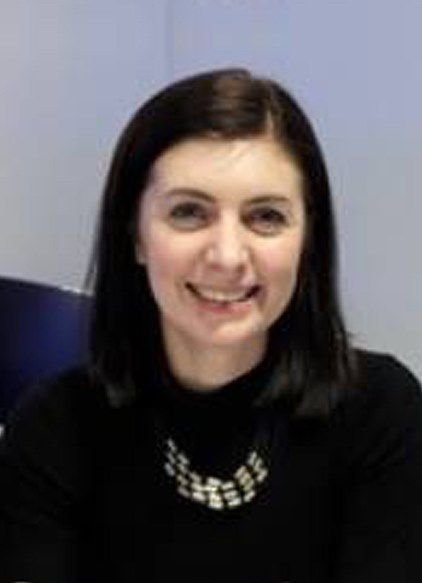 Hello, my name is Sarah
Hello, my name is Sarah
On 3 February our Partnership launched the Health Inequalities Academy . The aim of the academy is to support everyone working across the Partnership, whatever their role, to see that part they can play in creating a more equitable system.
One of the population groups facing significant inequalities that we have identified to take action on through the Health Inequalities Academy are asylum seekers, refugees and undocumented migrants.
The need to focus on improving outcomes for this group was also highlights as part of the West Yorkshire and Harrogate review report to tackle health inequalities for Black, Asian and minority ethnic communities and colleagues.
Thank you to Dr Amy Stevens, a Public Health Registrar in Yorkshire and Humber who is working with Bevan Healthcare and Doctors of the World, for writing this blog to help us understand the health needs of this population and to identify steps we can take together to address inequalities.
Hello, my name is Amy
 The life experiences of asylum seekers, refugees and undocumented migrants influence their health needs. Many migrants may have fled war and conflict, persecution, violence, natural and environmental disasters and famine. Most come from low and middle-income countries with weaker health systems, poorer health indicators and risk of endemic diseases. They may have endured long and dangerous migration journeys, overcrowded refugee camps, exploitation by traffickers and had limited access to adequate food, sanitation and healthcare. These experiences make migrants more vulnerable to certain physical and mental health problems than the general population. However, many migrants arrive in the UK in relatively good physical health but health problems develop as a consequence of immigration policy and barriers in healthcare access.
The life experiences of asylum seekers, refugees and undocumented migrants influence their health needs. Many migrants may have fled war and conflict, persecution, violence, natural and environmental disasters and famine. Most come from low and middle-income countries with weaker health systems, poorer health indicators and risk of endemic diseases. They may have endured long and dangerous migration journeys, overcrowded refugee camps, exploitation by traffickers and had limited access to adequate food, sanitation and healthcare. These experiences make migrants more vulnerable to certain physical and mental health problems than the general population. However, many migrants arrive in the UK in relatively good physical health but health problems develop as a consequence of immigration policy and barriers in healthcare access.
The health of migrants can be adversely impacted on through lack of access to employment, education, income, welfare and public services, quality housing and healthcare; they may also face racism and discrimination.
The Overseas Visitor Charging policy means undocumented migrants have to pay fees of up to 150% the NHS tariff for some secondary and community care services. Service providers have difficulty understanding the complex policies and consequences have included eligibility mistakes and failure to provide urgent and immediately necessary care irrespective of a patient’s ability to pay. Migrants in vulnerable circumstances are deterred from seeking healthcare as they are uncertain of their entitlements and fear NHS charging, data sharing with the Home Office and other migration enforcement. Primary care is a universal entitlement but many migrants face barriers to GP services, including wrongly being refused registration and language challenges. An increase in remote services in response to the pandemic has made digital exclusion an additional healthcare barrier.
Making West Yorkshire and Harrogate a leading example in promoting health and wellbeing of refugees, asylum seekers and undocumented migrants
The Migrant Health Workshop at the Health Inequalities Academy launch identified a desire amongst local stakeholders to create positive change to improve the health and wellbeing of refugees, asylum seekers and undocumented migrants residing in the region. West Yorkshire and Harrogate have the foundations to realise this ambition: many areas across the region are engaged in City of Sanctuary activities to promote a culture of welcome for people seeking sanctuary in the UK; the region is home to exemplary voluntary and community sector (VCS) organisations providing health and wellbeing support including Bevan Healthcare CIC, St Augustine’s Centre, Solace, and PAFRAS; and the recently established Yorkshire and Humber Migration Health Group provides coordination and leadership on the health and wellbeing needs of vulnerable migrants in the area.
There are however opportunities for further action which include:
- Joint Strategic Needs Assessments for local migrant populations
- Investment in partnership working between the public sector and VCS organisations working with migrants
- Joint commissioning to address health inequalities for migrants in all key sectors
- Access to meaningful primary care; CCGs to encourage and support GP Practices to sign up to the Doctors of the World Safe Surgeries Network
- Development of appropriate and accessible mental health services and wellbeing support
- Training and support for frontline service providers on the health needs and rights of migrants; enable them to advocate for people facing charges for NHS care
- Policy surveillance to investigate the impact hostile environment policies have on migrant health to facilitate evidence-based policy review
- Advocacy for immediate suspension of hostile environment policies. The COVID-19 pandemic has highlighted and exacerbated existing health inequalities experienced by refugees, asylum seekers and undocumented migrants. Now is the time to act and model the change that is needed in the system to redress these inequalities. Let us lead the way in promoting the health and wellbeing of all migrants in our communities.
Have a good, safe weekend.
Amy and Sarah
What else has been happening this week?
“Fantastic effort” sees over half a million people vaccinated in West Yorkshire
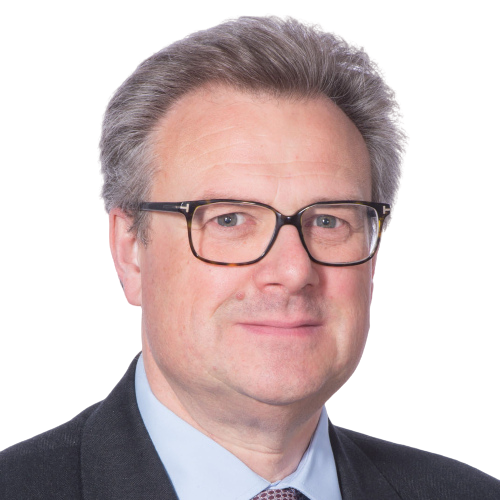 We are delighted to report that we have now vaccinated over half a million people in West Yorkshire, which I am sure you will agree is a tremendous achievement. The figures published today show that as of the end of Sunday 14 February we have vaccinated 531,052 people, which is approximately 25% of the adult population in our region over the past 10 weeks. This has been a huge challenge but thanks to the fantastic efforts of GPs, pharmacists, NHS staff, our local authorities as well as the voluntary, community and social enterprise sector and volunteers from the public, we have more than risen to it. All have been supporting the vaccination programme and helping us to ensure as many people as possible are protected.
We are delighted to report that we have now vaccinated over half a million people in West Yorkshire, which I am sure you will agree is a tremendous achievement. The figures published today show that as of the end of Sunday 14 February we have vaccinated 531,052 people, which is approximately 25% of the adult population in our region over the past 10 weeks. This has been a huge challenge but thanks to the fantastic efforts of GPs, pharmacists, NHS staff, our local authorities as well as the voluntary, community and social enterprise sector and volunteers from the public, we have more than risen to it. All have been supporting the vaccination programme and helping us to ensure as many people as possible are protected.
Local Maternity System
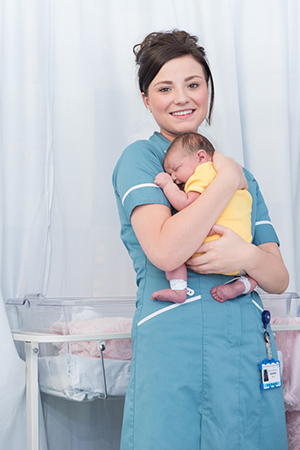 Our Local Maternity System Board met on Monday 15th February and the meeting was opened by the Chair and SRO Carol McKenna with a big thank you to all involved in the maternity work within the Local Maternity System. Following the recent SOAG West Yorkshire and Harrogate System Oversight Group meeting where recognition was given from Rob Webster for the great work and transformation that has continued by the maternity system. National colleagues from NHS E/I also said well done to everyone and recognised the work achieved improvement in safety and quality outcomes. The board heard that still births are at their lowest rate since 2016 and overall the maternity system is doing well in a challenging time. A discussion was had about the ongoing work to embed the recent Ockenden review of maternity services. The board members highlighted that the West Yorkshire Local Maternity System was well placed to take this forward as they are already embedded in the West Yorkshire and Harrogate Health and Care Partnership and the wider system is working well together. Work continues in addressing health inequalities.
Our Local Maternity System Board met on Monday 15th February and the meeting was opened by the Chair and SRO Carol McKenna with a big thank you to all involved in the maternity work within the Local Maternity System. Following the recent SOAG West Yorkshire and Harrogate System Oversight Group meeting where recognition was given from Rob Webster for the great work and transformation that has continued by the maternity system. National colleagues from NHS E/I also said well done to everyone and recognised the work achieved improvement in safety and quality outcomes. The board heard that still births are at their lowest rate since 2016 and overall the maternity system is doing well in a challenging time. A discussion was had about the ongoing work to embed the recent Ockenden review of maternity services. The board members highlighted that the West Yorkshire Local Maternity System was well placed to take this forward as they are already embedded in the West Yorkshire and Harrogate Health and Care Partnership and the wider system is working well together. Work continues in addressing health inequalities.
The Maternity Voice Partnerships have all undertaken surveys of women’s experiences of maternity care during the pandemic. 1169 women responded across the Local Maternity System. The demographics of the respondents demonstrate that further work needs to be undertaken to ensure Maternity Voice Partnerships are representative of their communities. Themes included: visiting; emotional wellbeing; loneliness, partners and antenatal preparation. Some of these themes are being addressed and the results of these surveys are guiding the Maternity Voice Partnership work programme for 2021. In December 20.3% women were booked onto a Continuity of Care pathway and 34.5% of women from Black and Asian communities were booked onto a Continuity of Care pathway.
An update on workforce was given as the board with appreciation that this has been a challenging time for staff and their resilience but we collectively continue to be driven by safety and high quality services. A job advert has now gone out to recruit newly qualified registered midwives at one of the six hospital trusts within the Local Maternity System. A presentation was given about the role of the Voluntary and Community sector by Masira Hans from Mind in Bradford and the potential opportunities there are to be had in working more closely together to support families by developing relationships and making greater connections. Chris Day representing the Yorkshire and Humber Neonatal Operational Delivery Network gave an overview of the most recent data neonatal data and spoke about better managing prematurity and mortality challenges. He acknowledged the excellent work done by maternity teams to increase magnesium sulphate and steroid uptake and spoke of the new challenge to do the same around deferred cord clamping. A presentation was given on clinical glucose monitoring in pregnancy, was acknowledged as a great piece of collaborative work.
A message from Dr Owen Williams, CEO from Calderdale and Huddersfield NHS Foundation Trust
Watch this moving staff message from Dr Owen Williams, CEO from Calderdale and Huddersfield NHS Foundation Trust has he thanks all his hospital colleagues for their hard work, bravery and commitment during the pandemic and pledges that he will never forget it. Owen also pays tribute to people who have lost their lives and the impact on families and friends and how this should never be forgotten. The film was recorded on 8 February 2021.
Project Futures Festival ’2021
 Whatever stage you’re at in your career, there was something to interest everyone at the week-long NHS Project Futures Festival ’21 last week. There was an opportunity to learn about the values, behaviours and capabilities needed to deliver successful change in the volatile and uncertain world of the future. Colleagues connected with leaders in their field, learnt about about the latest innovations, and explored new resources. Festival headline speakers include Health Education England’s Chief Executive, Dr Navina Evans, who launched the five-day event. Guest speakers at workshops included Ian Holmes, Director for our Partnership, and Fatima Khan-Shah, Programme Director for our Personalised Care and Unpaid Carers Programmes. NHS and Health Education England colleagues were keen to increase the number of people from diverse backgrounds applying for roles in the project profession and launched a project competency framework and apprenticeship scheme during the festival week.
Whatever stage you’re at in your career, there was something to interest everyone at the week-long NHS Project Futures Festival ’21 last week. There was an opportunity to learn about the values, behaviours and capabilities needed to deliver successful change in the volatile and uncertain world of the future. Colleagues connected with leaders in their field, learnt about about the latest innovations, and explored new resources. Festival headline speakers include Health Education England’s Chief Executive, Dr Navina Evans, who launched the five-day event. Guest speakers at workshops included Ian Holmes, Director for our Partnership, and Fatima Khan-Shah, Programme Director for our Personalised Care and Unpaid Carers Programmes. NHS and Health Education England colleagues were keen to increase the number of people from diverse backgrounds applying for roles in the project profession and launched a project competency framework and apprenticeship scheme during the festival week.
Partnership’s People Board
Our People Board met on Wednesday. The board covers all sectors, including social care, unpaid carers and volunteers. The relationships we have with the West Yorkshire Combined Authority for the area’s economic recovery plan, Health Education England, the Academic Health Science Network, med-tech and the skills sector, including universities, helps us to look at what we can do together to develop and grow our workforce and support people into better jobs via our People Board work. Work is progressing with academia to develop a Health and Care Workforce Observatory to provide insight into an evidence-based approach to workforce planning. This has been given a welcome boost through funding from Health Education England which will allow us to progress at pace. The objective is to change how to deliver workforce development in its broadest sense, across our health and social care workforce. This involves developing talent and a range of access options into work within health and social care as well as developing careers, encouraging inclusivity and wellbeing.
Urgent and emergency care programme board update
The urgent and emergency care programme board met on Tuesday 16 February and focused on the development of a urgent and emergency care delivery plan for 2021/22, structured around the three themes of pre- hospital, in-hospital and safe transfer of care. The priorities of each work stream were outlined, based on national priorities and asks. The board agreed on the need for clear articulation of what we are aiming to achieve in each work area, a consistent approach to delivery and in reporting back to the board and how we can use data to measure whether or not we are driving improvement. Each of the three work areas will be led by a clinical lead, programme lead and programme manager. A West Yorkshire Business Intelligence group has recently been established and will meet regularly to report back on data and support each work stream by analysing and interpreting this data and being able to make recommendations to the programme board. This group is initially looking at the data around NHS 111 referrals to Emergency Departments, which we hope to learn much from. The board also noted the urgent and emergency care paper on patient and public engagement which was recently discussed at the Joint Committee of Clinical Commissioning Groups Patient and Public Involvement Group and was well received. The Patient and Public Involvement group acknowledged the scale of the urgent and emergency care agenda and the need for it to be underpinned by sound intelligence and insights. The excellent work recently undertaken around increasing NHS111 referrals to the Community Pharmacy Consultation scheme was also discussed, noting the significant increase in referrals in recent months.
Improving Population Health Board 12 February 2021
The Improving Population Health Board met on Friday 12 February 2021. Members caught up with initiatives around climate change, diabetes, health and housing, health inequalities, prevention and reducing violent crime. Voluntary, community and public sector organisations have been submitting their applications for the Green Social Prescribing Grant Fund which launched earlier this month. Additionally, we’ve allocated Targeted Prevention Funding to 11 applicants who will present their plans at a Prevention Network meeting.
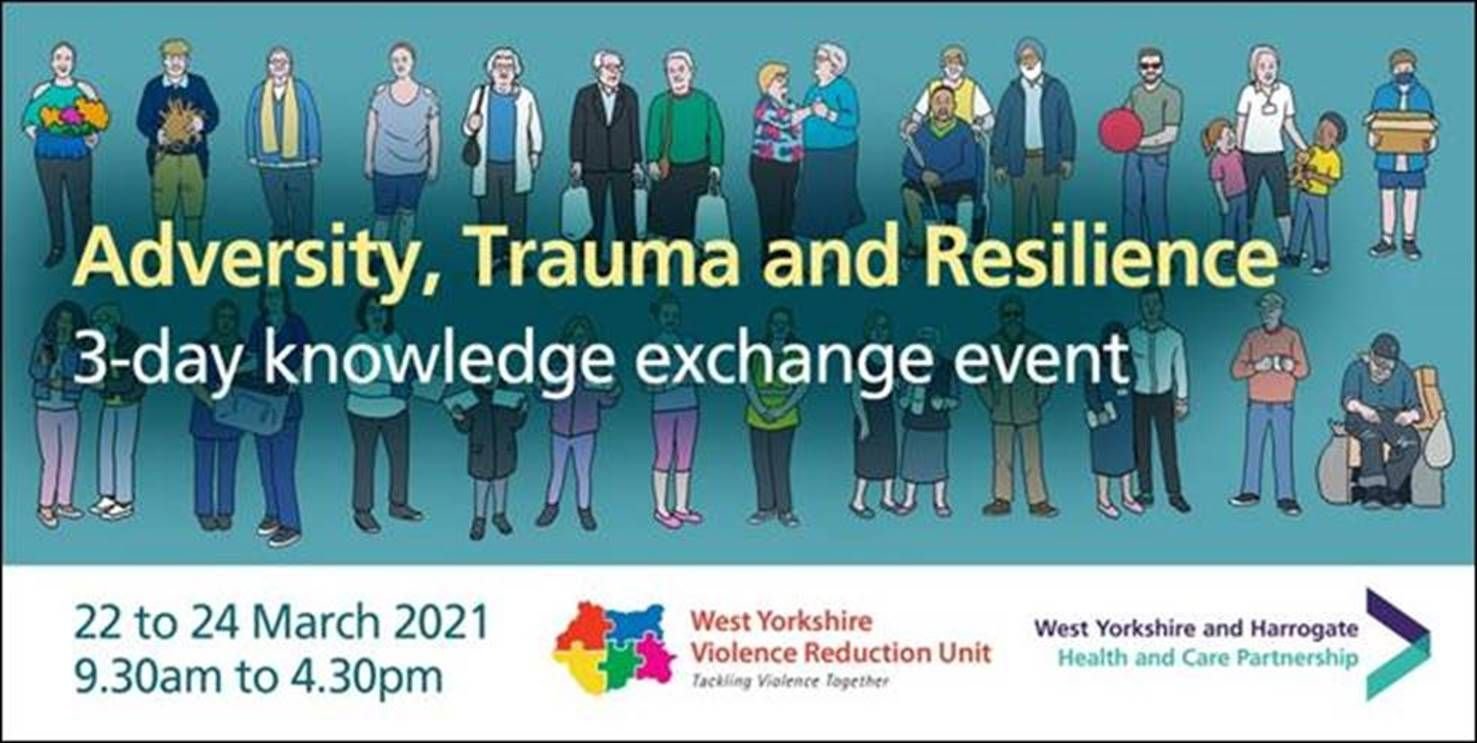 Referrals to the Healthier You NHS Diabetes Prevention Programme have increased significantly, largely thanks to the joint working of the partnership project managers and GP practices to target those at risk of type 2 diabetes. We are also routinely achieving the targets set by NHSE for reaching Black, Asian and Minority Ethnic communities. We’ve started early work with our learning disability health and care champions to access structured education for the prevention of diabetes. Keeping fit and well was high on the agenda including setting up a West Yorkshire and Harrogate Smoke Free Forum and adapting a whole system approach to address healthy weight and physical activity. We are developing the Housing and Mental Health collaboration agreement; looking at housing developments for people with complex needs; and compiling evidence to help address inequalities for people with learning disabilities and the disproportionate impact of COVID. Work continues at pace to deliver a range of initiatives as part of the West Yorkshire Violence Reduction Unit to reduce serious violence and exploitation, especially among victims aged 25 or under. That includes the launch of the Adversity, Trauma and Resilience Knowledge Exchange from Monday 22 to Wednesday 24 March 2021.
Referrals to the Healthier You NHS Diabetes Prevention Programme have increased significantly, largely thanks to the joint working of the partnership project managers and GP practices to target those at risk of type 2 diabetes. We are also routinely achieving the targets set by NHSE for reaching Black, Asian and Minority Ethnic communities. We’ve started early work with our learning disability health and care champions to access structured education for the prevention of diabetes. Keeping fit and well was high on the agenda including setting up a West Yorkshire and Harrogate Smoke Free Forum and adapting a whole system approach to address healthy weight and physical activity. We are developing the Housing and Mental Health collaboration agreement; looking at housing developments for people with complex needs; and compiling evidence to help address inequalities for people with learning disabilities and the disproportionate impact of COVID. Work continues at pace to deliver a range of initiatives as part of the West Yorkshire Violence Reduction Unit to reduce serious violence and exploitation, especially among victims aged 25 or under. That includes the launch of the Adversity, Trauma and Resilience Knowledge Exchange from Monday 22 to Wednesday 24 March 2021.
Over 400 colleagues from across the area and beyond took part in the Health Inequalities Academy launch from 3 to 5 February. The Academy brought together learning, experiences and plans for further action to be delivered by the health, care, community and voluntary services organisations that make up the partnership. The Healthy and Sustainable Hospitals framework to support clinicians in identifying and acting on the health inequalities that affect the physical and mental health of patients is just one of those plans.
The board (which is chaired by Dr James Thomas, Chair of Bradford District and Craven Clinical Commissioning Group and Robin Tuddenham, CEO for Calderdale Council and Chief Officer for Calderdale Commissioning Group and includes representatives from public health, VCSE, council and the NHS) also discussed a programme work plan for 2021/22 including key areas of focus for each of the programme networks taking into consideration local, regional and national priorities and requirements.
Mental Health Programme Board update
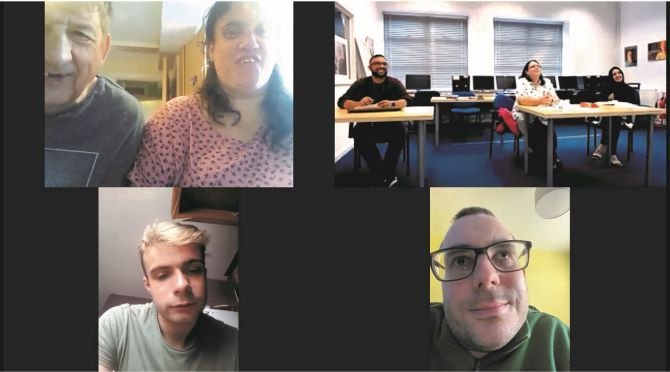 The Programme Board met on 9 February to discuss an agenda that included updates from projects and workstreams such as the Community Mental Health Transformation bid, the Learning Disabilities Challenge, Assessment and Treatment Unit (ATU) reconfiguration, CAHMS, and Autism. The Board received a presentation on plans to reduce serious violence and make West Yorkshire & Harrogate a trauma informed and responsive system. An outline of the results from the Barriers to Access to Urgent and Emergency Care survey of autistic people and their carers was shared, and this will be reported fully shortly. The Board noted the proposed response to the actions to tackle mental health inequality as recommended by the BAME review, undertaking to discuss the response and agree final ownership of the actions. The Programme holds being overall responsibility for eight actions and contributes to nine more whose overall responsibility sits elsewhere. The Programme will respond by the deadline of 23rd February in these areas:
The Programme Board met on 9 February to discuss an agenda that included updates from projects and workstreams such as the Community Mental Health Transformation bid, the Learning Disabilities Challenge, Assessment and Treatment Unit (ATU) reconfiguration, CAHMS, and Autism. The Board received a presentation on plans to reduce serious violence and make West Yorkshire & Harrogate a trauma informed and responsive system. An outline of the results from the Barriers to Access to Urgent and Emergency Care survey of autistic people and their carers was shared, and this will be reported fully shortly. The Board noted the proposed response to the actions to tackle mental health inequality as recommended by the BAME review, undertaking to discuss the response and agree final ownership of the actions. The Programme holds being overall responsibility for eight actions and contributes to nine more whose overall responsibility sits elsewhere. The Programme will respond by the deadline of 23rd February in these areas:
- improving access to safe work for BAME colleagues in West Yorkshire and Harrogate
- ensuring the West Yorkshire and Harrogate Partnership’s leadership is reflective of communities
- population planning (using information to make sure that services meet different groups’ needs – such as collecting data, understanding inequalities, equity of commissioning for VCSE and cultural competence of services).
The Programme will work to finalise a workplan comprising:
- setting the expectation that the MHLDA Workforce group sets training ethnicity targets and reviews employment practices
- developing and appointing to a joint public health and/or leadership role within the MHLDA collaborative to focus on health inequalities
- supporting the work of the WY&H Health Inequalities Academy
- confirming the role of the Wellbeing Hub in supporting VCS staff, developing online resources and supporting the roll out of Mental Health First Aid (or similar) training
- understanding current arrangements in each place and establishing any need for collaborative work on VCSE secondment agreements & MOUs for sharing of staff.
Empowering patients to take a more active role in managing their own health
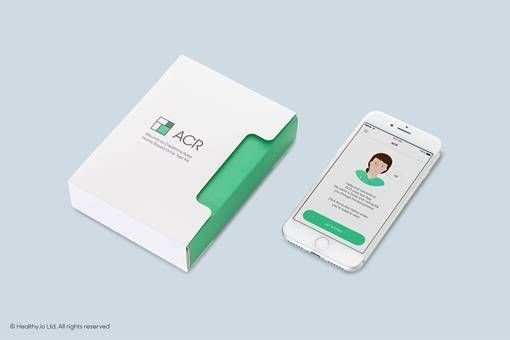 Following a successful first phase, a further 11,000 patients are being given the opportunity to test out smartphone-powered home kidney health testing. Phase 2 of Healthy.io allows more patients to test their albumin to creatinine ratio (ACR) in their urine. ACR is a test to highlight early signs of kidney damage in at risk patients, including those with diabetes and hypertension.
Following a successful first phase, a further 11,000 patients are being given the opportunity to test out smartphone-powered home kidney health testing. Phase 2 of Healthy.io allows more patients to test their albumin to creatinine ratio (ACR) in their urine. ACR is a test to highlight early signs of kidney damage in at risk patients, including those with diabetes and hypertension.
Over 90% of people taking part so far say that the test is “very easy” or “easy” to use. Giving people with diabetes the opportunity to complete a urine test at home also means fewer trips to the GP surgery, reducing costs and resource pressures. The initiative, which is funded by NHSx and run in partnership with the Yorkshire and Humber Academic Health Science Network (YHAHSN), is looking to identify primary care networks that are interested in taking part, particularly from areas of high deprivation or low current ACR uptake rates. Primary care colleagues, interested in finding out more can contact their CCG or pete.waddingham@yhahsn.com at the YHAHSN directly. See the Healthy.io website for more information.
#HelpUsHelpYou Lung Cancer Campaign
 The NHS England/NHS Improvement Help Us Help You campaign – Lung Cancer Symptoms – launched this week, part of the Access phase of the Help Us Help You brand. The campaign seek to address the barriers that are deterring patients from accessing NHS services. This phase focuses on encouraging the public to contact their GP practice if they are worried about a cough that lasts three weeks or more, which could be a sign of lung cancer. It will encourage those most likely to get lung cancer and who have this symptom, but do not have COVID-19, to contact their GP practice, reminding the public that cancer remains a priority and that the NHS is here to see them safely. Supporting materials are now available from the Public Health England campaign resource centre and the link has been shared with local communications leads, to assist in amplifying the campaign at local level. A video featuring Sir Andrew Strauss and Gaby Roslin, who both lost loved ones to lung cancer, is being shared on social media and TV/radio advertising is also being broadcast. There will be activity targeted specifically to Black, Asian and Minority Ethnic audiences, and accessible materials are also being made available via PHE.
The NHS England/NHS Improvement Help Us Help You campaign – Lung Cancer Symptoms – launched this week, part of the Access phase of the Help Us Help You brand. The campaign seek to address the barriers that are deterring patients from accessing NHS services. This phase focuses on encouraging the public to contact their GP practice if they are worried about a cough that lasts three weeks or more, which could be a sign of lung cancer. It will encourage those most likely to get lung cancer and who have this symptom, but do not have COVID-19, to contact their GP practice, reminding the public that cancer remains a priority and that the NHS is here to see them safely. Supporting materials are now available from the Public Health England campaign resource centre and the link has been shared with local communications leads, to assist in amplifying the campaign at local level. A video featuring Sir Andrew Strauss and Gaby Roslin, who both lost loved ones to lung cancer, is being shared on social media and TV/radio advertising is also being broadcast. There will be activity targeted specifically to Black, Asian and Minority Ethnic audiences, and accessible materials are also being made available via PHE.
Harrogate lung cancer patient Ric Myers, who is also a Cancer Champion for the West Yorkshire and Harrogate Cancer Alliance, is supporting the campaign. Ric's patient story can be found on the Cancer Alliance website.
For information on how West Yorkshire and Harrogate Cancer Alliance is supporting the campaign, please contact Tracy Holmes, tracy.

